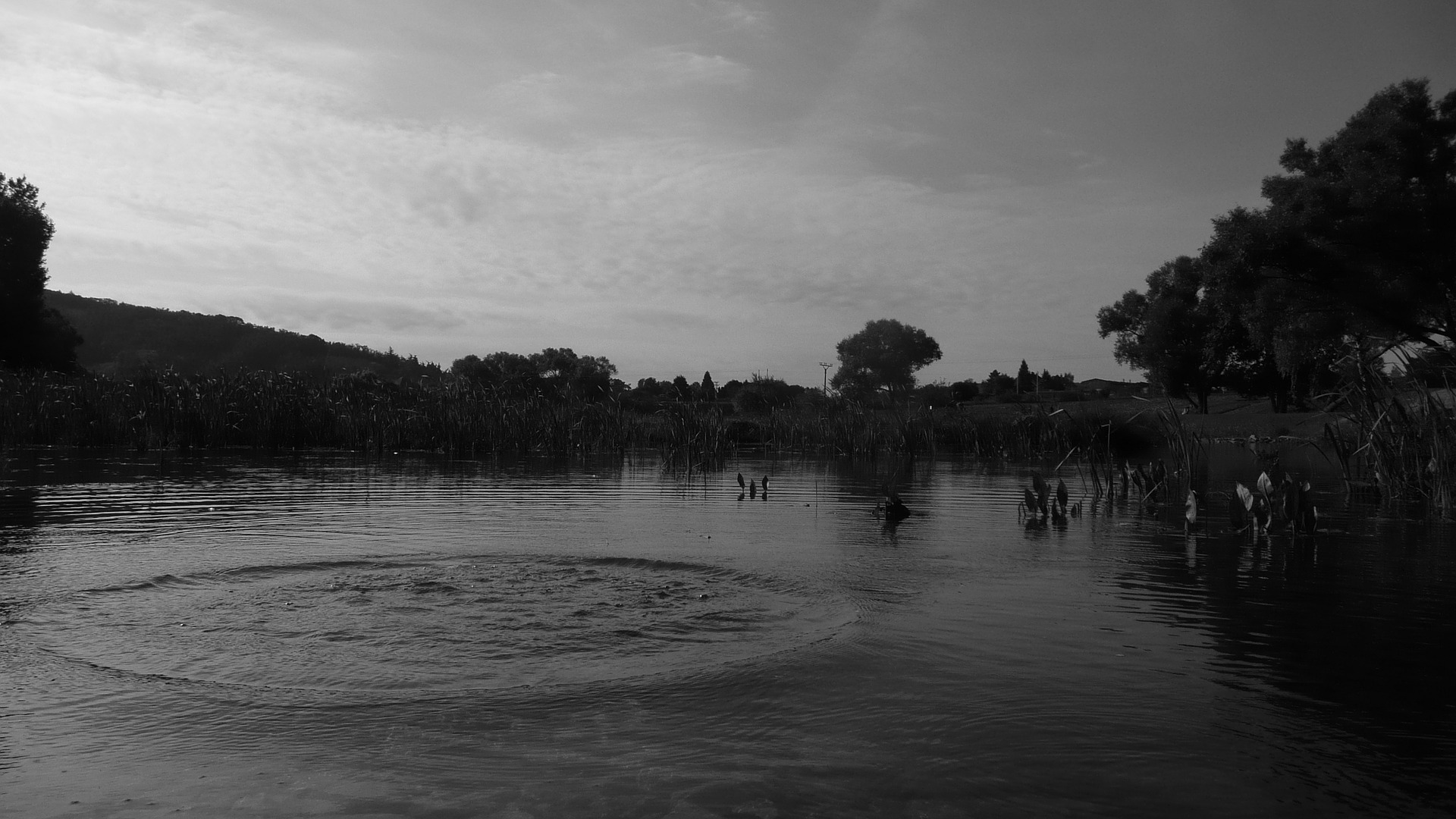Thus far in my writing career, I have gathered lots of wisdom. For example, a writer is a person who writes. You’re welcome. That pearl was free. Here’s another: a successful writer is a person whose writing is read.
Basic, simple things.
Now that I have this knowledge, the question remains: how do I become accustomed to the strangeness of disseminating my ideas online? The freest, most viral, most accessible medium of communication is social media, but how do I navigate the Internet as a socially anxious writer-person? Interacting online sometimes feels like dropping stones into a pond and watching the water ripple outward, away from me. And sometimes interacting with strangers online feels like I just jumped out of a plane and forgot my parachute.

Image by PublicDomainPictures from Pixabay
Forty Year Olds May Have Invented Dorkiness
I’m a Gen-Xer, and my problems with anxiety and depression originated years before there was a world wide web. I was the kid in high school who had tremors in her intestines because her BFF kept hounding her to go to some cute guy’s party. I was the girl with the trembling hands, the rapid heart rate, who often couldn’t and still sometimes can’t find words to articulate my thoughts.
It’s hard to articulate clear thoughts when my heart is racing, or I suddenly need to find a bathroom. Ellen Hendriksen, author of How to Be Yourself: Quiet Your Inner Critic and Rise Above Social Anxiety, says, “At the root of social anxiety is the fear of ‘the Reveal of some perceived fatal flaw” (cited in Dembling). With social anxiety comes the catastrophic thinking that the worst case scenario is likely to happen (cited in Dembling).
I feel physically panicked when I jump to the conclusion that all of my worst fears could come true with one false move. You could say I revert to early primate or reptile mode. The fear of choking on a banana, tripping over my own feet, or having a booger hang from nose makes me feel like I have choked on a banana, without actually choking on a banana. This circular reasoning increases my anxiety.
My worst case scenario thoughts usually have a juvenile delinquent theme to them. I think this is in part because my anxiety started spiking during middle and high school, when I was bullied for being a “freak.” Remove me from 1995, and the times have changed. My pimples have cleared, the braces are off, and I have figured out what types of conditioner to use on my ethnic hair, but my fear of rejection still surges through me, whether face-to-face or online.
The quickest and easiest solution is to withdraw. But withdrawing from the thing I am building, a writing career, won’t help me. Withdrawing is a short-term solution for stopping my shaking hands. The National Alliance for Mental Health states that 18.1% of adults in the U.S. experienced an anxiety disorder such as post-traumatic stress disorder, obsessive-compulsive disorder and specific phobias (“Mental Health by the Numbers”).
If one in five people in the US has anxiety, then people are anxious before they tweet into the void and wait for a glimmer of recognition that they exist online. If a tweet falls in the forest, and no one hears it, does it make a sound?

Image by
What I like about interacting online is that social media allows me the time to collect my thoughts and say what I want and type what I want before I blurt something aloud I might later regret. There are plenty of arguments against the overuse of social media, how it increases the risk for issues such as lowered academic attainment, decreased self-esteem, sleep problems, anxiety, and even depression (Woods and Scott; Jacobsen and Forste; Lin, et. al). The asynchronous mode of writing ideas on social media can leave any person feeling disconnected–time zones, algorithms, and phone notifications separate us. But I still think there is value in writing and disseminating my ideas online, even though sometimes it feels isolating.
Developing Persona
I am a creative nonfiction writer (here’s an example of creative nonfiction I have published: The Lesson). As such, I think and ponder a lot about how I represent myself on the page, my persona. While interacting on social media, my online existence and persona is a construct (Barbour, Marshall, and Moore para. 7). And everyone knows this. We are not our whole selves online. No one would be interested in my grocery lists, pediatrician appointments, vet appointments, oil changes, or any other boring tidbit of my life online. I post my writing life online. The dichotomy of creating a version of myself as I tweet into what feels like nothingness sometimes makes me feel conflicted, creating an alternative version of myself. It feels like mental gymnastics.
In an essay about Vivian Gornick’s book The Situation and the Story, Maria Popova writes, “What we really fear is not that the internet knows too much about us…but that it knows too little…that it reduces the larger, complex truth of who we are to a few fragmented facts about what we do; that it hijacks our rich, ever-evolving personal stories and replaces them with disjointed anecdotal data.” Who am I online? Both social media (medium of communication) and social anxiety (fear of social interaction) are offshoots of the human experience. I am a full human outside of the Internet, so how do I grapple with displaying only parts of myself for an online audience?
Gornick’s book The Situation and the Story is really foundational for my view on how to write creative nonfiction. Gornick writes, “The subject of autobiography is always self-definition, but it cannot be self-definition in the void. The memoirist, like the poet and the novelist, must engage with the world, because engagement makes experience, experience makes wisdom, and finally it’s the wisdom — or rather the movement toward it — that counts…don’t exist as a writer” (cited in Popova).
What feels most ironic to me about creating an online persona is how it dovetails with the development of my creative nonfiction protagonist in my writing. Both are constructs, yet both are developed for different audiences. According to Bessière, Pressman, Kiesler, and Kraut, the discrepancy between my actual-self, and my “ideal-self” that I modify for social presentation could deteriorate my well-being.
Sometimes developing that online persona feels that way, like it could overtake other parts of my life if I am not careful. An example of the deteriorating feel of this social presentation is when I tweet into the nothingness and feel like I don’t exist. Or is this feeling only exacerbated when you feel empty and Tweet. Which causes which? Is it the chicken or the egg?

Image by Myriam Zilles on Pixabay
Tackling the Disconnection
Instead of letting my physical reaction of anxious symptoms overwhelm me, I move head-on into feeling disconnected. It’s my own not-doctor-supervised version of exposure therapy. According to the American Psychological Association, exposure therapy was developed to help people battle their fears by exposing fearful people to the things which make them nervous, fearful, or avoidance.
I could avoid participating on social media and posting my writing online because it makes me feel physically uncomfortable. That would be avoidance, but avoiding the thing which makes me nervous holds me back. I tackle the feeling of being disconnected by plowing forward and doing that thing which makes me most nervous, even as I feel my bowels quake. #anxietyforever
This post participates in the #AuthorToolboxBlogHop hosted by Raimey Gallant. You can join the blog hop on her site.
And here’s all the stuff I cited!–
Works Cited
Bessière, K., Pressman, S., Kiesler, S., & Kraut, R. (2010). Effects of Internet Use on Health and Depression: A Longitudinal Study. Journal of Medical Internet Research, 12(1). doi:10.2196/jmir.1149
Dembling, Sophia. “Four Strategies to Help Conquer Social Anxiety.” Psychology Today. Psychology Today, Feb. 25, 2018, https://www.psychologytoday.com/us/blog/the-introverts-corner/201802/four-strategies-help-conquer-social-anxiety
Lin, L. Y., Sidani, J. E., Shensa, A., Radovic, A., Miller, E., Colditz, J. B., … Primack, B.A. “Association Between Social Media Use and Depression Among U.S. Young Adults.” Depression and Anxiety, 33(4), 323–331, 2016. doi:10.1002/da.22466
Marshall, P.D., Persona Studies: Mapping the Proliferation of the Public Self” Journalism, 2014, Vol. 15(2) 153–170 DOI: 10.1177/1464884913488720
“Mental Health by the Numbers.” National Mental Health Alliance. https://www.nami.org/learn-more/mental-health-by-the-numbers
Popova, Maria. “How to Own Your Story: Vivian Gornick on the Art of Personal Narrative and Nuanced Storytelling.” Brain Pickings, https://www.brainpickings.org/2015/06/22/vivian-gornick-the-situation-and-the-story-personal-narrative/
“What is Exposure Therapy?” American Psychological Association. 2019. https://www.apa.org/ptsd-guideline/patients-and-families/exposure-therapy

Leave a comment